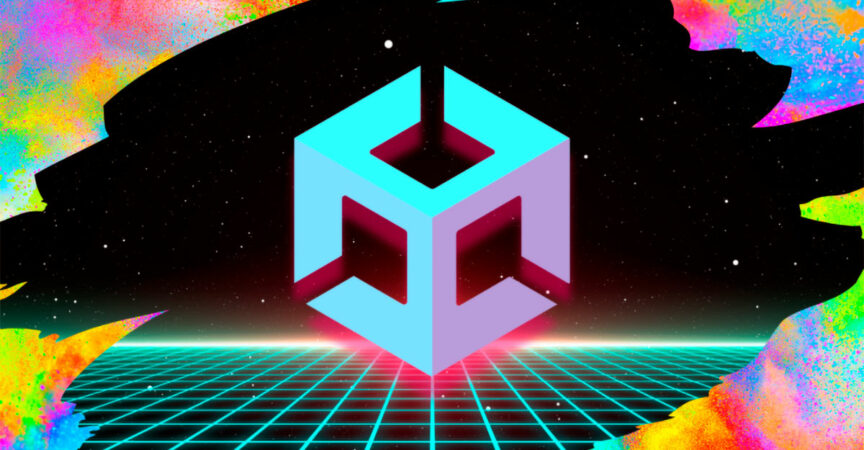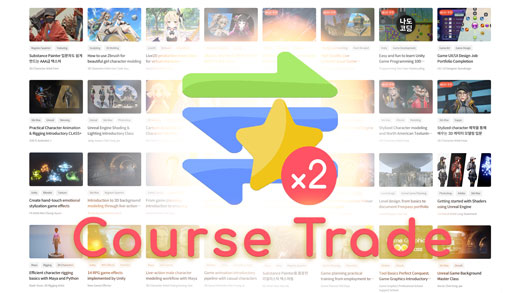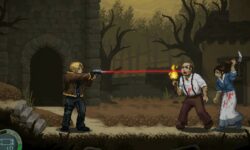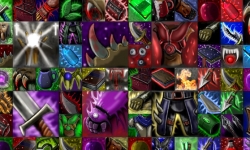Unity Bootcamp – 3D Game Development by Luis Ramirez Jr
Release date:2023, February
Duration:23 h 59 m
Author:Luis Ramirez Jr
Skill level:Beginner
Language:English
Exercise files:Yes
Master Unity and land a job. This all-inclusive Unity course equips you with the skills to progress from a complete beginner (with no coding experience) to developing your own 3D games and ultimately securing a position as a Game Developer this year!
Our 3D Game Development Bootcamp is the ultimate and current course for absolute beginners to become proficient in Unity and secure positions as 3D Game Developers, Unity Engineers, or Unity Developers. We guarantee that it is the most comprehensive and up-to-date program available.
What you will learn
- Proficiency in Unity right from the basics. (It’s one of the top cross-platform game engines for building professional 3D games)
- Knowledge of C# programming language right from the basics, including variables, classes, namespaces, functions, and more.
- Step-by-step guidance to create and publish your game online with your own storyline, music, dialogue, and even cutscenes.
- Ability to deploy games across a variety of platforms such as Windows, MacOS, iOS, Android, and more.
- Building of an RPG game with features like quests, rewards, weapon upgrades, a combat system, potions, and more.
- Creation of games with advanced features similar to your favorite games.
- Incorporation of your preferred controller (Nintendo Switch, XBOX, Playstation) or keyboard to move your characters.
- Direction on launching a career as a 3D Game Developer, Unity Engineer, or Unity Developer.
Course overview
Discovering how to create your own 3D video game should be an exciting experience that doesn’t even feel like learning. That’s exactly what you’ll find with this Unity Bootcamp.
Using the latest version of Unity, you’ll build a professional-grade 3D game with a custom storyline, quests, rewards, combat system, AI enemies, dialogue, music, cinematics, and more. You’ll do so by adhering to the best game development practices for 2023.
By the end of this course, you’ll have published your very first game, but not just any game. It’ll be one built with the most current and accurate information available. Your instructor, Luis, is committed to ensuring that you acquire the skills necessary to become a top 10% Game Developer.
Additionally, this course is continuously updated and will serve as your primary resource for Unity and 3D game development throughout your career.
No more wasting time or struggling with confusing, outdated, or incomplete tutorials. Enroll today and join our exclusive live online community classroom on Discord, where you’ll learn alongside thousands of fellow students, alumni, mentors, TAs, and instructors.
Most importantly, you’ll be learning from a senior industry professional with real-world experience in Unity game development and the C# programming language.
Why Learn Unity?
Before we proceed, let’s answer a fundamental question – what exactly is Unity?
Unity is an industry-leading game engine that supports the development of 3D, 2D, AR, and VR games across various platforms. It’s a robust tool that simplifies the process of creating and launching games on a wide range of devices.
Chances are, if you’ve played any video games (and since you’re here, we assume you have), you’ve played a game built using Unity. Now, you can learn how these games are built and create your own.
So, what has made Unity so popular?
Unity’s user-friendly interface and plethora of features and tools make game development easy and intuitive. The engine comes with built-in physics and animation systems and supports third-party assets and tools, enabling developers to create anything their imagination can conjure.
Additionally, a vast community of developers contributes to the engine’s development, ensuring that it remains at the forefront of game development.
These reasons are also why individuals with Unity skills are in such high demand.
Why Become a Unity Game Developer?
To put it simply, the gaming industry is a massive business and, like the movie and TV industries, it’s all about creating the next big hit. This is why top gaming companies like Rockstar Games, Electronic Arts, Activision Blizzard, Roblox, and Ubisoft are constantly seeking to hire skilled Unity Developers to help them achieve this goal.
Because of this demand, you can expect to be well-compensated for your work in the video game industry. At the time of writing, the average Game Developer salary is around $80,000.
By acquiring the in-demand skills taught in this bootcamp, you’ll be ready to jumpstart your career as a Unity Developer, Unity Engineer, or 3D Game Developer.
Here’s what this Unity Bootcamp covers:
By enrolling in this course, you will progress from a complete beginner to developing your own game from the ground up through a three-pronged approach:
- You will receive instruction on the latest information and best practices, ensuring that you have the most current and applicable knowledge.
- You will engage in hands-on exercises that allow you to put theory into practice, helping you to internalize what you’ve learned and develop your skills.
- You will work through the entire game development process, from ideation to coding to publishing, so that you are equipped to create your own games independently.
And, you’ll have the opportunity to learn from a world-class ZTM instructor, Luis Ramirez, who has over 10+ years of experience in the industry.
Now, let’s explore the specifics of what you’ll gain knowledge of in this Unity 3D Game Development Bootcamp:
- Beginning Game Development
If you’re new to game development or programming, this section will introduce you to the fundamentals of game engines and Unity. You’ll learn how to install and set up Unity and explore the interface. - Unity Essentials
In this section, you’ll learn the essential skills needed to start building games with Unity. You’ll learn how to create, manipulate and customize game objects, use materials to modify their surfaces, and work with prefabs for efficient game object reuse. - Scene Design
Now you’ll use Unity’s powerful tools to design and create game scenes. You’ll learn how to use Unity’s Grid system, as well as the Poly Brush package, to create and manipulate game environments. You’ll also learn how to import and work with asset packs, including FBX files, to create your own game models. - C# Programming Basics
If you’re new to programming, don’t worry! This section will teach you the basics of C# programming language starting from scratch. You’ll learn about namespaces, classes, properties/variables, functions, controlling the flow of logic, inheritance, and constructor functions. It will all be taught step-by-step so that you can easily follow along. - Player Movement
Learn how to move objects using Unity’s Input System package. You’ll start with keyboard input but then move on to adding support for your favorite controller (Nintendo Switch, Xbox, Playstation). You’ll also learn how to restrict movement and constrain it to specific areas on a map using the navmesh agent. - Intermediate C#
Take your C# programming skills to the next level by learning how to create instances, use abstract classes to enforce a specific implementation, and use static classes to help outsource utility logic. - AI Movement
Learn how to bring your NPCs (non-player characters) to life with Artificial Intelligence by adding movement behavior to your enemies. They’ll be able to do classic game behavior such as chase, guard, and initiate attacks on players. - Patrolling with Splines
Improve your AI characters further by adding patrolling behavior around the map. You’ll use the splines package to create a fixed path on the map. You’ll also learn about rotations, pausing, and using the State pattern for toggling between behaviors. - Player & Enemy
Stats Learn how to apply stats to characters using Scriptable Objects. This feature makes it easier for designers to test and balance a game quickly, and by utilizing it to its fullest, you’ll understand the importance of collaboration. - Animation
Bring your game to life with animations! You’ll apply idle, walking, running, death, and attack animations to your characters. You’ll also learn fundamental animation concepts such as keyframes and blend trees, and you’ll program animations to trigger from your components. - Engaging in Combat Get ready for some action-packed combat! In this section, you’ll learn how to implement damage and injury systems in your game using events to communicate between characters. Additionally, you’ll use Raycasting to detect when a character has been attacked, and you’ll also utilize gizmos to visualize the range of enemy attacks.
- Designing User Interfaces A great User Interface (UI) is essential for any successful game. You’ll learn how to use Unity Toolkit to create a customized UI for your game, including modifying the appearance of elements, positioning elements, and using Unity’s template and USS systems. Once you’ve created your UI, you’ll add it to your game as an overlay.
- Crafting Dialogue Your game’s story is crucial in keeping players engaged. In this section, you’ll use Ink to create dialogue-driven games, crafting custom story paths, and building NPCs to handle dialogue. You’ll even get to write your own story and make players feel a range of emotions.
- Implementing Quests and Rewards A good story always involves a quest! You’ll learn how to add a quest system to your game and apply rewards to players, such as adding potions, increasing health, and upgrading weapons. You’ll use enums to keep track of available weapons, toggle active game objects, and bind functions to dialogue events.
- Managing Scenes In this section, you’ll learn how to transition between different scenes in your game using collision detection and Unity’s scene management class.
- Saving Game Progress Nobody wants to lose their progress, so you’ll learn how to allow players to save their game data, including their current position and stats. You’ll use Unity’s player preferences class to save data locally on a player’s machine, and the data will be persisted across page refreshes.
- Lights, Camera, Action! To give your game that professional feel, you’ll use Cinemachine to create cutscenes and share them with others. You’ll set up cameras around the scene that can be easily transitioned from one another, and you’ll learn how to play cinematic scenes programmatically with collision detection.
- Adding Audio Bring your game to life by adding sound effects and music! You’ll learn how to dynamically play audio during events such as attacks or defeats, and even fade out music while transitioning to a new scene.
- Polishing Your Game In this section, you’ll add those extra finishing touches to your game, such as freezing time, adding vegetation, rotating cameras, adding skyboxes, and supporting additional input devices such as Nintendo Switch Pro Controllers.
- Publishing Your Game The final step in creating your game is to publish it and share it with the world! You’ll learn how to publish your game and make it available to the community. It’s time to sit back and watch your creation come to life!
Additional benefit: This course is part of Zero To Mastery’s commitment to keeping its courses up to date. As the Unity ecosystem evolves, Luis regularly updates the course content with new lectures, projects, and resources to ensure that you are always learning the latest game development best practices. You can rely on this course to provide you with ongoing support as you develop your skills and advance your career in game development. It’s a valuable resource you can count on.
What’s the bottom line?
The aim of this course isn’t to simply have you follow along without understanding the concepts, leaving you with no direction after completion except to watch more tutorials. Instead, the course is designed to challenge and motivate you to transform from a novice to a skilled Game Developer / Unity Engineer, placing you in the top 10% of the field 💪.





 Channel
Channel




